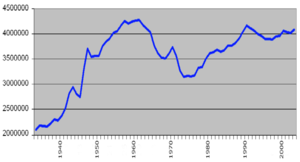If you are listing pros and cons and asking questions of parents and people like us to determine if you want to remain childfree, for now or permanently, you may do those of us that have already made the decision a favor by choosing to breed.
What? What about all those posts about saving the planet and your relationship and your money? What about giving voice to individuals and outliers? What about confronting taboos and exercising your right to think for yourself and CHOOSE?
Well, as readers of WNK may have already seen, we are here to provide a broad base of information and varied perspectives, so that one may make an informed choice and feel supported, regardless of what that choice may be. To that end, we need to talk about the economy.
The real and hidden costs of raising children, personal finances and lifestyle etc. are certainly worth addressing. And we at WNK. like many others in the child-free community, try to. I also advise people to schedule an Expert Financial Consultation if they are struggling to manage their financial liabilities.
UNLIKE others in the CF community, including a child-free blogger that wrote “Going Child-Free To Save The Economy” and “decided that breeders are to blame for our current high level of unemployment”, we (Okay, I) studied economics, worked in finance and have a mathematical and theoretical grasp on reality that isn’t overwhelmed by anger or idiocy or child-free ideological extremes.
And, oh yeah, before we “decide” something, we research and read. On our Facebook site we previously posted stories about how Russia and South Korea are taking steps to increase the birth rate in order to bolster their economies. Check out the links.
Yesterday, Bloomberg News ran this story:
Births at 11-Year Low May Extend U.S. Housing Slump Amid Consumer Cutbacks – Bloomberg.
The piece identifies a nasty Catch-22 ensnaring the childless and child-free lately. Some of us are deciding against raising kids, or postponing, because we are struggling financially; and our decision is in turn hurting the economy.
While many reading this piece don’t want to make or raise babies, the reality seems to be that we need more kids to feed our fierce economic machine. In capitalist, consumption-based America, if we are not growing, we’re dieing. Inflation is not necessarily our friend, but deflation (decreased demand, less consumption, fewer jobs, a shrinking population and shrinking GDP) is definitely our enemy. So the government adopts policies (that many of us claim are discriminatory) to encourage the population to make more babies. And if more people join the ranks of the child-free, federal tax deductions or credits may only be the beginning.
If you don’t want to believe, won’t read the stories or do research to see what not having kids can do to a capitalist economy, look overseas please. Asia is struggling, and Japan may reveal the path that our low birth rate having country will be following: A real estate bust followed by over fifteen years of low interest rates and meager job growth combined with an impossibly slow housing recovery and constant fears of deflation further shrinking the value of their assets and their entire economy.
Now, on a resource-strapped planet riddled with pollution and populated with too many that are abused, poverty stricken or starving, this is an admittedly simplistic view of how breeding, or not, affects the economy. It is an equation that does not account for environmental costs and wars and other negative externalities. But market economies like ours are insatiable beasts. And unless or until we are ready to face the flaws of capitalist, consumption-based religiosity (which will likely involve some serious suffering) we may soon run out of ways of keeping our economy functioning for most of us unless we get behind immigration reform and this baby making thing.
There may be few alternatives?
I guess we can have more pets or just become more obese? Many of the child-free appear to be animal lovers (someone please explain the link), and while Fido and Frisky consume enough to create jobs (the U.S. pet industry is worth $55 billion annually) , they will never drive a car or need public schooling. Obesity may also be working as a growth strategy. One person can consume enough for 1.5 or 2 people and get sick along the way to feed the booming healthcare industry maybe?
Questions? Critiques? Need more clarity? Please comment or contact me.
Related articles
- FlashBack: Standout Stories That Previously Appeared On WNK’s FB Page Only (whynokids.com)
- Lower birth rates for US women tied to economy (thegrio.com)
- The cost of raising a child climbed 40% over the past decade (whynokids.com)
- Is economy best birth control? US births dip again (seattlepi.com)
- Top 10 WNK Links (whynokids.com)


